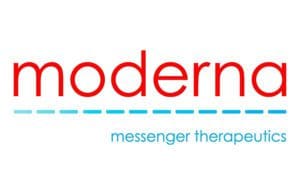 Health experts remain divided over the need for COVID-19 vaccine boosters in the coming months, but the U.S. government is preparing for that possibility by purchasing 200 million additional doses of the COVID-19 vaccine from Moderna (NSDQ:MRNA).
Health experts remain divided over the need for COVID-19 vaccine boosters in the coming months, but the U.S. government is preparing for that possibility by purchasing 200 million additional doses of the COVID-19 vaccine from Moderna (NSDQ:MRNA).
The purchase of additional doses will also enable the U.S. government to inoculate children aged 12 to 17 in coming months, assuming FDA authorizes that use. Two doses of the vaccine were 100% effective in that age group, according to a recent Phase 2/3 trial.
In May, FDA amended its EUA for the Pfizer-BioNTech vaccine to include adolescents aged 12 to 15.
The U.S. has committed to buying 500 million doses of Moderna’s vaccine to date. The company expects to deliver 110 million doses in the fourth quarter of 2021 and another 90 million in the first quarter of 2022.
To date, Moderna has provided 217 million doses to the U.S.
The NIH has launched a clinical trial involving fully vaccinated participants to better assess the possible short-term need for boosters.
“We appreciate the collaboration with the U.S. government for these additional doses of the Moderna Covid-19 vaccine, which could be used for primary vaccination, including of children, or possibly as a booster if that becomes necessary to continue to defeat the pandemic,” explained Stéphane Bancel, Moderna’s CEO, in a statement.
The U.S. government is also negotiating with Pfizer and BioNTech to procure more doses of their COVID-19 vaccine.
President Biden recently announced that the U.S. would purchase 500 million doses of Pfizer vaccine for use in developing countries over the next year. The U.S. will also consider donating a potential surplus of Moderna vaccine doses.
One of the officials said Wednesday that if the Moderna purchase left the administration with surplus vaccine, the administration would donate those doses to other countries.
The Biden administration has also committed to investing $3 billion to support the development of next-generation COVID-19 treatments.